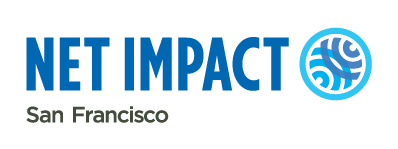Member Spotlight: Joleen Hsu and her untold story
/Net Impact San Francisco (NISF) member Joleen Hsu tells us her story of being an Asian American entrepreneur and why conscious consumerism is necessary to building a sustainable economy, inclusive of BIPOC (Black, Indigenous and people of color) communities and the environment.
Explain your involvement with social impact and sustainability. Why is this involvement important to you?
As a millennial Asian American woman, I struggled to find people in the mainstream media who looked like me, who had a background similar to mine and to whom I could relate growing up. Jackie, my co-founder, and I realized this was, unfortunately, a shared experience among many. So we founded a curated gift box company, untold, to help shoppers easily connect with BIPOC entrepreneurs and discover unique, ethically-made, and sustainable products.
untold co-founders, Joleen Hsu (left) and Jackie Kao (right)
Tell us more about untold. What has co-starting an ethical and sustainable business taught you? Any challenges or surprises?
What Jackie and I really wanted to hone in on was the untold stories behind the products. To help shoppers learn about and connect with the faces and stories behind the small businesses, promoting the idea of “conscious shopping.”
From our initial user research, Jackie and I found that people were, in fact, interested in supporting BIPOC-owned small businesses and finding handmade, artisanal, and sustainable products. What shoppers lacked was the time and exposure to look for these products. That gap is what untold seeks to fill, with carefully curated gift boxes.
Part of untold’s mission is to promote BIPOC-owned small businesses to encourage greater representation and inclusion. What other positive social impact can conscious consumerism bring?
1. A strengthened local economy and relief for those impacted by COVID-19.
A report by McKinsey & Company released this spring shows that the global pandemic has disproportionately affected already vulnerable minority-owned small businesses in the United States. Additionally, research by the National Bureau of Economic Research found that between February and April, the hardest hit small business owners were African American (41%), Latinx (32%), Asian (26%), immigrant (36%), and female (25%).
Support for small businesses extends to business owners, employees, families, and communities.
2. Closing of the racial wealth gap.
How deep has the racial wealth gap grown? Let’s compare the median wealth of a single black woman, $200, to that of a single white man, $28,900, when factors such as higher levels of debt and lower incomes are added to the equation. The effects of wealth depression are only compounded against those of intersecting minority identities, including race and gender.
3. Moving toward a green economy.
Studies have shown that “consumers—particularly Millennials—increasingly say they want brands that embrace purpose and sustainability.” Conscious consumers can empower purpose-driven companies and hold large corporations accountable by voting with their dollars.
By amplifying sustainable, ethical and BIPOC-owned companies, we are investing in an inclusive green economy that builds social equity and protects our planet.
What role has joining Net Impact San Francisco played in your story of being a social impact and sustainability advocate?
I joined NISF in search of a community that’s also devoted to making a positive social impact. The events and newsletters have provided me with resources to stay up-to-date and informed about the environmental impact space. It has shown me how the Bay Area could transform into a hub of innovation and sustainable development. But most importantly, Net Impact gives me a platform to engage with my community.
From NISF to untold, I’ve learned that there is always a story to be told. And I hope that both Net Impact’s and untold’s missions can continue to inspire others, as they have inspired me in my journey.






